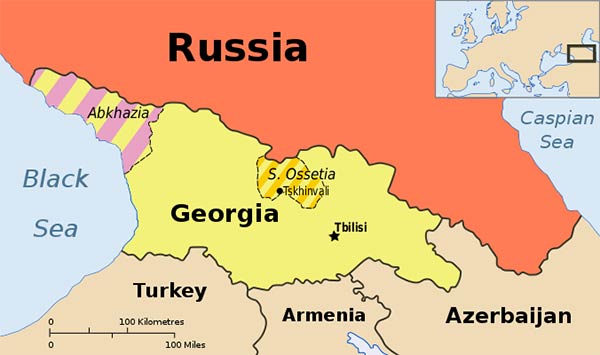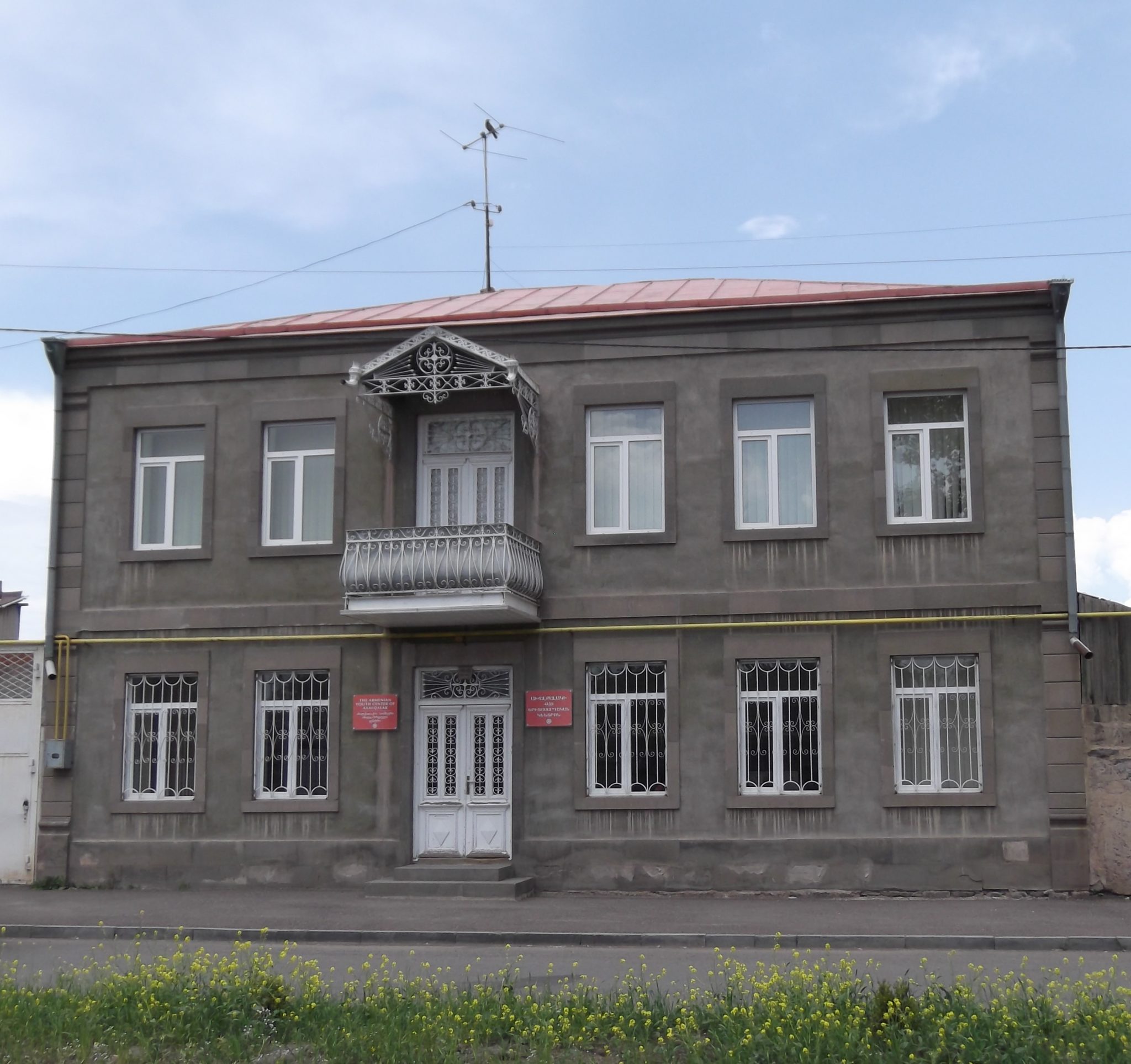Re: The Struggle in Javakhk
1918 թ. հայ-վրացական պատերազմը. Նյութեր և փաստաթղթեր
Lragir.am
15 Հոկտեմբերի 2014,
Լույս է տեսել Վլադիմիր Հարությունյանի «1918 թ. հայ-վրացական պատերազմը. նյութեր և փաստաթղթեր» գիրքը, որի շնորհանդեսը տեղի ունեցավ այսօր Մոդուս Վիվենդի կենտրոնում: Գրքում հավաքված են հայ-վրացական պատերազմի վերաբերյալ պատմական փաստաթղթեր, որոնք, ըստ հեղինակի, յուրահատուկ փաստեր են: Վլադիմիր Հարությունյանն այս հրատարակությունը կարևորում է նրանով, որ սա պատմական դեպքերի և անձերի գործունեության յուրահատուկ լյուստրացիա է:
Փաստաթղթերը Վլադիմիր Հարությունյանը թարգմանել է ռուսերենից: Գրքում ներկայացված են փաստաթղթերի ռուսերեն բնագրի պատճենն ու դրանց հայերեն թարգմանությունները: «Պարզապես բերված են փաստաթղթեր, որից ընթերցողը կարող է եզրակացություն անել: Այդ փաստաթղթերը վկայում են, որ իրոք անիմաստ են այն խոսակցությունները, թե գնացել էինք, Թիֆլիսն արդեն չոքեցրել էինք, կամ էլ վրացիներն ասում են, թե իբր հայկական բանակը ջախջախել էին, մինչև Երևան ճանապարհը բաց էր, ոչ մի հայ զինվոր չկար, և եթե անգլիացիները չլինեին, Երևանը չոքած էր»,- գրքի շնորհանդեսի ժամանակ ասաց հեղինակը:
Վլադիմիր Հարությունյանն ասում է, որ այս գրքում իր համար կարևոր բացահայտումն այն էր, որ Հայաստանի համար դժվարին այդ օրերին ռուսական զինված ուժերը չեն հապաղել ծավալել իրենց հետախուզական գործունեությունը:
«Այսինքն՝ կայսերական նրանց մտածելակերպը, իրենց ազգային շահերը հետապնդելը ոչ մի պահ չի դադարել: Հայաստանի համար այդ դժվար պահին հենց այդ նույն ռուսական ուժերն իրենց ղեկավարությանն առաջարկություն են արել, որ օգտվելով առիթից՝ նորից Բաթումը գրավեն, Կարսը գրավեն: Բացարձակ խոսք չի գնացել այն մասին, որ Կարսի մարզը արդեն պետք է, որ Հայաստանին միացվեր: Նրանք նույնիսկ այդ պահին Հայաստանի հաշվին ցանկացել են իրենց շահերն առաջ տանել»,- նշեց Վլադիմիր Հարությունյանը:
Հեղինակը զերծ է մնացել գրքում կարծիքներ հայտնելուց: «Ամենախոսունը դա կարծիքը չէ, փաստաթղթերն են: Հեղինակը կարող է շատ գեղեցիկ մտքեր ասել, բայց այսօրվա իրավիճակում փորձը ցույց է տալիս, որ մեզ մոտ հիմնավորված կարծքիներ շատ քիչ են հնչում: Դրա համար ես զերծ եմ մնացել կարծիք հայտնելուց, շատ փոքր ներածական եմ գրել, իսկ ընթերցողն այդ փաստաթղթերի հիման վրա թող եզրակացություն ու կարծիք կազմի»,- ասաց նա:
Նշենք, որ գիրքը լույս է ընծայվել Մոդուս Վիվենդի կենտրոնի հետ համագործակցության արդյուքնում:
- See more at: http://www.lragir.am/index/arm/0/soc....c4AedjNu.dpuf
1918 թ. հայ-վրացական պատերազմը. Նյութեր և փաստաթղթեր
Lragir.am
15 Հոկտեմբերի 2014,
Լույս է տեսել Վլադիմիր Հարությունյանի «1918 թ. հայ-վրացական պատերազմը. նյութեր և փաստաթղթեր» գիրքը, որի շնորհանդեսը տեղի ունեցավ այսօր Մոդուս Վիվենդի կենտրոնում: Գրքում հավաքված են հայ-վրացական պատերազմի վերաբերյալ պատմական փաստաթղթեր, որոնք, ըստ հեղինակի, յուրահատուկ փաստեր են: Վլադիմիր Հարությունյանն այս հրատարակությունը կարևորում է նրանով, որ սա պատմական դեպքերի և անձերի գործունեության յուրահատուկ լյուստրացիա է:
Փաստաթղթերը Վլադիմիր Հարությունյանը թարգմանել է ռուսերենից: Գրքում ներկայացված են փաստաթղթերի ռուսերեն բնագրի պատճենն ու դրանց հայերեն թարգմանությունները: «Պարզապես բերված են փաստաթղթեր, որից ընթերցողը կարող է եզրակացություն անել: Այդ փաստաթղթերը վկայում են, որ իրոք անիմաստ են այն խոսակցությունները, թե գնացել էինք, Թիֆլիսն արդեն չոքեցրել էինք, կամ էլ վրացիներն ասում են, թե իբր հայկական բանակը ջախջախել էին, մինչև Երևան ճանապարհը բաց էր, ոչ մի հայ զինվոր չկար, և եթե անգլիացիները չլինեին, Երևանը չոքած էր»,- գրքի շնորհանդեսի ժամանակ ասաց հեղինակը:
Վլադիմիր Հարությունյանն ասում է, որ այս գրքում իր համար կարևոր բացահայտումն այն էր, որ Հայաստանի համար դժվարին այդ օրերին ռուսական զինված ուժերը չեն հապաղել ծավալել իրենց հետախուզական գործունեությունը:
«Այսինքն՝ կայսերական նրանց մտածելակերպը, իրենց ազգային շահերը հետապնդելը ոչ մի պահ չի դադարել: Հայաստանի համար այդ դժվար պահին հենց այդ նույն ռուսական ուժերն իրենց ղեկավարությանն առաջարկություն են արել, որ օգտվելով առիթից՝ նորից Բաթումը գրավեն, Կարսը գրավեն: Բացարձակ խոսք չի գնացել այն մասին, որ Կարսի մարզը արդեն պետք է, որ Հայաստանին միացվեր: Նրանք նույնիսկ այդ պահին Հայաստանի հաշվին ցանկացել են իրենց շահերն առաջ տանել»,- նշեց Վլադիմիր Հարությունյանը:
Հեղինակը զերծ է մնացել գրքում կարծիքներ հայտնելուց: «Ամենախոսունը դա կարծիքը չէ, փաստաթղթերն են: Հեղինակը կարող է շատ գեղեցիկ մտքեր ասել, բայց այսօրվա իրավիճակում փորձը ցույց է տալիս, որ մեզ մոտ հիմնավորված կարծքիներ շատ քիչ են հնչում: Դրա համար ես զերծ եմ մնացել կարծիք հայտնելուց, շատ փոքր ներածական եմ գրել, իսկ ընթերցողն այդ փաստաթղթերի հիման վրա թող եզրակացություն ու կարծիք կազմի»,- ասաց նա:
Նշենք, որ գիրքը լույս է ընծայվել Մոդուս Վիվենդի կենտրոնի հետ համագործակցության արդյուքնում:
- See more at: http://www.lragir.am/index/arm/0/soc....c4AedjNu.dpuf











Comment